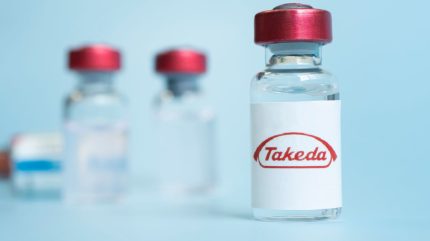
Takeda has released long-term findings from the Phase III ADVANCE-CIDP 3 clinical trial of HYQVIA [Immune Globulin Infusion 10% (Human) with Recombinant Human Hyaluronidase] in treating chronic inflammatory demyelinating polyneuropathy (CIDP).
This extension study assessing the safety and efficacy of HYQVIA follows the double-blind, placebo-controlled ADVANCE-CIDP 1 trial.

Discover B2B Marketing That Performs
Combine business intelligence and editorial excellence to reach engaged professionals across 36 leading media platforms.
Patients transitioning to the ADVANCE-CIDP 3 trial received open-label HYQVIA, maintaining their established dose and regimen.
Assessing the long-term tolerability, safety and immunogenicity of the treatment was the extension trial’s primary objective while efficacy and CIDP relapse rates were the exploratory outcomes.
The trial demonstrated favourable long-term safety and tolerability profiles for HYQVIA, along with a reduced relapse rate, supporting its potential as a maintenance regimen for CIDP.
The results were in line with the already established safety and tolerability profile of the asset and no new safety concerns were reported.

US Tariffs are shifting - will you react or anticipate?
Don’t let policy changes catch you off guard. Stay proactive with real-time data and expert analysis.
By GlobalDataKey trial findings included a median monthly HYQVIA dose of 64g every four weeks, with an average infusion duration of 135.5 minutes.
The majority of doses were administered every four weeks across two infusion sites.
Adverse events were reported in 89.4% of trial subjects, with 60% linked to HYQVIA.
Headache, erythema, pruritus and pain at the infusion site, nausea, pyrexia and fatigue were observed to be the most frequently seen adverse events per infusion.
Takeda Plasma-Derived Therapies Business Unit Research and Development head and senior vice-president Kristina Allikmets said: “The long-term data from the ADVANCE-CIDP 3 clinical trial allow us to further characterise the safety, efficacy and tolerability profile of HYQVIA and reinforces its role as a long-term, up-to once monthly maintenance treatment for this complex, chronic condition.
“These results reflect our continued commitment to bringing the benefits of our differentiated immunoglobulin therapies to patients with neuroimmunological disorders, and providing a range of effective treatment options that address the individual needs of a broad range of patients.”
The latest development comes after two Phase III studies of Takeda’s epilepsy drug soticlestat for patients with the rare conditions Lennox-Gastaut syndrome (LGS) and Dravet syndrome missed their primary endpoints.





